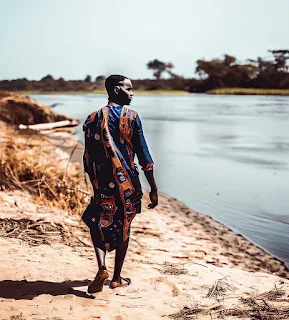Kwenza, known for captivating lies, ignited minds with his artful words, not for honesty, but for fiery tales.
Kwenza Could Start A Fire With His Words
As the ancestors say, along the banks of the great Zambezi River, there once lived a man named Kwenza. He was renowned throughout the land, not for his honesty, but for his ability to weave falsehoods with such skill that his words could spark a fire in the hearts and minds of those who listened. Kwenza was known as the "Man who could start a fire with his words."
His tales were as tall as the mighty baobab trees that shaded the village square. He would spin stories of incredible adventures, exaggerating even the smallest details until they seemed like grand legends. His silver tongue and artful deceptions made him the center of attention, and people gathered from near and far to hear his mesmerizing stories.
As time passed, Kwenza's lies became more elaborate, and his reputation grew. However, like the raging Zambezi River, his lies began to overflow. The people of the village, once enthralled by his words, began to feel the consequences of his falsehoods. Trust eroded, friendships crumbled, and discord spread like wildfire.
One fateful day, as Kwenza stood near the riverbank, boasting about a mythical creature he claimed to have encountered deep in the jungle, the Zambezi River itself seemed to take offense. Its waters surged, rising higher and higher, until a wall of water crashed upon the village, quenching Kwenza's lies and washing him away.
Kwenza was never heard from again, and the village was forever changed. The once-thriving community had learned a valuable lesson – to always treat words with respect and to be mindful of the stories they shared. They realized that words, like the waters of the Zambezi, held immense power. They could bring life or destruction, build bridges or break them.
In honor of the lesson learned, the villagers gathered every year by the Zambezi River to offer their respect to the waters that had washed away Kwenza's lies. They vowed never to let deceit and falsehoods divide them again. Instead, they chose to nurture trust, unity, and the truth, knowing that these were the foundations of a harmonious and prosperous community.
The African folktale of Kwenza, the Man who could start a fire with his words, served as a timeless reminder to the people of the Zambezi village that the power of words, like the flowing river, could either nourish or devastate their lives.


























